- 2 Live Project
- Self-Paced/ Classroom
- Certification Pass Guaranteed
- If you’re in dilemma and thinking how to grow in your career, then you are at the right place. Today, where the competition is high and everyone is looking forward to how to make a handsome amount of money is looking for various career options.
- To make people aspire their dreams to get a well-established career is Google Cloud Certification Training Program. In our program you get the basic knowledge to the advanced level and get a training certification as well. We prepare you to be a qualified candidate with all the skills.
- The Google Cloud Certification Training Program offered by us created by the industry experts to meet the industry standards. All the individuals have given their many years to the industry and today they have their own expertise to guide students to fulfil their dreams through this course.
- Once you decide to choose our Google Cloud Training Program in Gurgaon then you get an opportunity to build a strong foundation in the Google Cloud Space. You get to learn everything from managing, designing, developing and deploying high-quality cloud solutions in less time than required during your Google cloud training in Gurgaon. We make you practice via the project work, assignments, and assessments to elevate your skills.
- You get to dive deep into the knowledge of Google Cloud Platform. You become a knowledgeable person in managing various GCP services starting from database services, networking concepts, security concepts, and more. With us you get quality study and convenience as you choose our Google Cloud Placement Course. So, you can think of getting full assistance till you land to a high-paying job.
- Course Objectives:
In our Google Cloud Training Program in Gurgaon, you get to learn the Google Cloud Fundamentals, Networking, Storage Services, tools, AI Services, Operations and more.
You get to understand Google Cloud Platform thoroughly and become proficient enough to give the commands. You become successful in working with Command line tools, Google Cloud, G suite and more.
You get an understanding of detailed designing of statics or dynamic cloud routes. An idea of GCP firewalls, how to make use of or implement VPC peering concepts.
A deep knowledge of handling or managing traffic with the help of auto scale concepts, while how to set IAM policy at multi-levels. You get an understanding of how to demonstrate VMs or compute engine when required.
Our Google Cloud Certification Training in Gurgaon gives you an idea of Kubernetes cluster, App engine, Cloud logging, Cloud monitoring, Cloud repository and much more.
An understanding of how to manage the provisions of Google cloud solutions; know about various GCP products, run data queries, machine learning services and more.
- Planning out your career is essential but choosing a course with high-paying salary is necessity. Coming across all the ins and outs is essential. Likewise, when opting for Google Cloud Certification Training in Gurgaon satiate your thoughts related to salary expectations. So, for your better clarification Google Cloud offer three different cloud services. Expanding your career and creating plenty of opportunities is what come hand-in-hand with us. You create plenty of opportunities for yourself when enrolling with us.
- We will help you with the resume building, career guidance, tips to crack the interview and much more. Our Google Cloud Certification training is not just limited to knowledge. You get a proof of your skills too. With us you get an average salary of $128k annually once you become a Google Cloud Professional. To get yourself enrolled in our Google Cloud Training Program you avail high paying salaries meeting all your expectations.
- Career Growth After Course:
With our Google Cloud Certification Training you get to skyrocket your career and you get to grow fulfilling your needs.
Every other industry is expanding at an alarming rate which will definitely increase the job options. Once having the right skills, you become a part of the evergreen career with huge chances of growth.
You will get to prepare with all the basic and advanced knowledge of various concepts helping you execute at the workplace. With all the right skills you become highly knowledgeable cracking your exam in one shot.
In our Google Cloud Training Program, you become in proficient in working on the LIVE projects. You get to become industry ready opening never-ending career growth options.
- In the IT world or we would better worldwide Google is a big and common name. Google is a big giant in the business world and ruling the world with its services and products. Google Cloud which is a product of Google that helps you to make data store securely in comparison to other cloud platforms. This is the reason the demand for Google Cloud certified professionals is at peak and is expected to grow with the passage of time.
- With various benefits Google Cloud is helping other companies in managing the data as well as making them save the overall space. To clear the Google Cloud certification exam is a big achievement and should not be missed anyhow.
- Google Cloud Certification proves to be a boon in multiple ways. In our Google Cloud Placement Course, you get hands-on training and learn the designing and deployment of Google Cloud Solutions for enterprises.
- Our Google Cloud Training Course in Gurgaon you get the right knowledge which makes you fulfil all your roles and responsibilities at the workplace.
- With the complete knowledge in our Google Cloud Training Institute in Gurgaon, we make you a resourceful skill to outperform the roles and responsibilities with full confidence.
Complete understanding of GCP Services, Google Cloud Fundamentals, Storage Services, Tools, Operations and AI Services
Understanding of how to manage Google Cloud Platform and command line on the fingertips
Knowledge of how to work with Command line tools, G suite, Google Cloud and more
A detailed understanding for designing dynamic and static cloud routes while having an understanding of implementation of VPC peering concepts and GCP firewalls
Traffic management with auto scale concepts and IAM policy on different various levels with an understanding of demonstration of compute engine or VMS whenever required
Familiar with Kubernetes cluster, App engine, Data usage, cloud logging, cloud repository, cloud monitoring services and more
Complete understanding of how to manage or provision the Google Cloud Solutions, GCP products, GCP services, data queries, machine learning services, Google Cloud Architecture and more
- Our industry experts have designed Google Cloud Training Program in Gurgaon in such a way that you get complete knowledge while preparing yourself for the various job opportunities in the leading industries. You get a chance to shape your career beautifully as you get to practice on the assignments, case studies, projects effortlessly. With the help of quizzes and assessments you evaluate your skills.
- The Google Cloud Placement Course makes you a master with the right skills and become a part of popular companies like Genpact, Hexaware, Cisco, IBM, TCS and many more. While practicing you become an efficient resource which helps you earn a lot of bucks.
- Earn all the Google Cloud Platform skills with our Google Cloud Certification Program and become a part of journey with full of amazing opportunities. With full determination, we help you kick start your career by passing all the necessary certifications which helps you to boost your resume. You get to take a step forward in the Cloud industry while expanding career growth in the leading industries.
- After the successful completion of Google Cloud Certification Training in Gurgaon, you will complete your project work and assessment which will help you become eligible with a certification that is globally accepted. You can show your certification after Google cloud training institute in Gurgaon as a proof of your skills. So, what awaits you for more to fly high in the cloud industry Speak to our industry experts now.
- Related Courses to Google Cloud Training in Gurgaon
Why should you learn Google Cloud?
By registering here, I agree to Croma Campus Terms & Conditions and Privacy Policy
 Course Duration
Course Duration
30 Hrs.Flexible Batches For You
19-Apr-2025*
- Weekend
- SAT - SUN
- Mor | Aft | Eve - Slot
21-Apr-2025*
- Weekday
- MON - FRI
- Mor | Aft | Eve - Slot
16-Apr-2025*
- Weekday
- MON - FRI
- Mor | Aft | Eve - Slot
19-Apr-2025*
- Weekend
- SAT - SUN
- Mor | Aft | Eve - Slot
21-Apr-2025*
- Weekday
- MON - FRI
- Mor | Aft | Eve - Slot
16-Apr-2025*
- Weekday
- MON - FRI
- Mor | Aft | Eve - Slot
Want To Know More About
This Course
Program fees are indicative only* Know more
Timings Doesn't Suit You ?
We can set up a batch at your convenient time.
Program Core Credentials
Trainer Profiles
Industry Experts
Trained Students
10000+
Success Ratio
100%
Corporate Training
For India & Abroad
Job Assistance
100%
BATCH TIMING
As per your requirementFOR QUERIES, FEEDBACK OR ASSISTANCE
Contact Croma Campus Learner Support
Best of support with us
Google Cloud Certification Training Programs
Google Cloud Certification TrainingPrograms
- Setting up cloud projects and accounts. Activities include
Creating projects
Assigning users to predefined IAM roles within a project
Managing users in Cloud Identity (manually and automated)
Enabling APIs within projects
Provisioning one or more Stackdriver workspaces
- Managing billing configuration. Activities include:
Creating one or more billing accounts
Linking projects to a billing account
Establishing billing budgets and alerts
Setting up billing exports to estimate daily/monthly charges
- Installing and configuring the command line interface (CLI), specifically the Cloud SDK (e.g., setting the default project)
- Planning and estimating GCP product use using the Pricing Calculator
- Planning and configuring compute resources. Considerations include:
Selecting appropriate compute choices for a given workload (e.g., Compute Engine, Google Kubernetes Engine, App Engine, Cloud Run, Cloud Functions)
Using preemptible VMs and custom machine types as appropriate
- Planning and configuring data storage options. Considerations include:
Product choice (e.g., Cloud SQL, BigQuery, Cloud Spanner, Cloud Bigtable)
Choosing storage options (e.g., Standard, Nearline, Coldline, Archive)
- Planning and configuring network resources. Tasks include:
Differentiating load balancing options
Identifying resource locations in a network for availability
Configuring Cloud DNS
- Deploying and implementing Compute Engine resources. Tasks include:
Launching a compute instance using Cloud Console and Cloud SDK (gcloud) (e.g., assign disks, availability policy, SSH keys)
Creating an autoscaled managed instance group using an instance template
Generating/uploading a custom SSH key for instances
Configuring a VM for Stackdriver monitoring and logging
Assessing compute quotas and requesting increases
Installing the Stackdriver Agent for monitoring and logging
- Deploying and implementing Google Kubernetes Engine resources. Tasks include:
Deploying a Google Kubernetes Engine cluster
Deploying a container application to Google Kubernetes Engine using pods
Configuring Google Kubernetes Engine application monitoring and logging
- Deploying and implementing App Engine, Cloud Run, and Cloud Functions resources. Tasks include, where applicable:
Deploying an application, updating scaling configuration, versions, and traffic splitting
Deploying an application that receives Google Cloud events (e.g., Cloud Pub/Sub events, Cloud Storage object change notification events)
- Deploying and implementing data solutions. Tasks include:
Initializing data systems with products (e.g., Cloud SQL, Cloud Datastore, BigQuery, Cloud Spanner, Cloud Pub/Sub, Cloud Bigtable, Cloud Dataproc, Cloud Dataflow, Cloud Storage)
Loading data (e.g., command line upload, API transfer, import/export, load data from Cloud Storage, streaming data to Cloud Pub/Sub)
- Deploying and implementing networking resources. Tasks include:
Creating a VPC with subnets (e.g., custom-mode VPC, shared VPC)
Launching a Compute Engine instance with custom network configuration (e.g., internal-only IP address, Google private access, static external and private IP address, network tags)
Creating ingress and egress firewall rules for a VPC (e.g., IP subnets, tags, service accounts)
Creating a VPN between a Google VPC and an external network using Cloud VPN
Creating a load balancer to distribute application network traffic to an application (e.g., Global HTTP(S) load balancer, Global SSL Proxy load balancer, Global TCP Proxy load balancer, regional network load balancer, regional internal load balancer)
- Deploying a solution using Cloud Marketplace. Tasks include:
Browsing Cloud Marketplace catalog and viewing solution details
Deploying a Cloud Marketplace solution
- Deploying application infrastructure using Cloud Deployment Manager. Tasks include:
Developing Deployment Manager templates
Launching a Deployment Manager template
- Managing Compute Engine resources. Tasks include:
Managing a single VM instance (e.g., start, stop, edit configuration, or delete an instance)
SSH/RDP to the instance
Attaching a GPU to a new instance and installing CUDA libraries
Viewing current running VM inventory (instance IDs, details)
Working with snapshots (e.g., create a snapshot from a VM, view snapshots, delete a snapshot)
Working with images (e.g., create an image from a VM or a snapshot, view images, delete an image)
Working with instance groups (e.g., set autoscaling parameters, assign instance template, create an instance template, remove instance group)
Working with management interfaces (e.g., Cloud Console, Cloud Shell, GCloud SDK)
- Managing Google Kubernetes Engine resources. Tasks include:
Viewing current running cluster inventory (nodes, pods, services)
Working with node pools (e.g., add, edit, or remove a node pool)
Working with pods (e.g., add, edit, or remove pods)
Working with services (e.g., add, edit, or remove a service)
Working with stateful applications (e.g. persistent volumes, stateful sets)
Working with management interfaces (e.g., Cloud Console, Cloud Shell, Cloud SDK)
- Managing App Engine and Cloud Run resources. Tasks include:
Adjusting application traffic splitting parameters
Setting scaling parameters for autoscaling instances
Working with management interfaces (e.g., Cloud Console, Cloud Shell, Cloud SDK)
- Managing storage and database solutions. Tasks include:
Moving objects between Cloud Storage buckets
Converting Cloud Storage buckets between storage classes
Setting object life cycle management policies for Cloud Storage buckets
Executing queries to retrieve data from data instances (e.g., Cloud SQL, BigQuery, Cloud Spanner, Cloud Datastore, Cloud Bigtable)
Estimating costs of a BigQuery query
Backing up and restoring data instances (e.g., Cloud SQL, Cloud Datastore)
Reviewing job status in Cloud Dataproc, Cloud Dataflow, or BigQuery
Working with management interfaces (e.g., Cloud Console, Cloud Shell, Cloud SDK)
- Managing networking resources. Tasks include:
Adding a subnet to an existing VPC
Expanding a subnet to have more IP addresses
Reserving static external or internal IP addresses
Working with management interfaces (e.g., Cloud Console, Cloud Shell, Cloud SDK)
- Monitoring and logging. Tasks include:
Creating Stackdriver alerts based on resource metrics
Configuring log sinks to export logs to external systems (e.g., onpremises or BigQuery)
Viewing specific log message details in Stackdriver
Using cloud diagnostics to research an application issue (e.g., viewing Cloud Trace data, using Cloud Debug to view an application point-intime)
Viewing Google Cloud Platform status
Working with management interfaces (e.g., Cloud Console, Cloud Shell, Cloud SDK)
- Managing identity and access management (IAM). Tasks include:
Viewing IAM role assignments
Assigning IAM roles to accounts or Google Groups
Defining custom IAM roles
- Managing service accounts. Tasks include:
Managing service accounts with limited privileges
Assigning a service account to VM instances
Granting access to a service account in another project
- Viewing audit logs for project and managed services.
- 2 Live Project
- Self-Paced/ Classroom
- Certification Pass Guaranteed
- Designing a solution infrastructure that meets business requirements. Considerations include:
Business use cases and product strategy
Cost optimization
Supporting the application design
Integration with external systems
Movement of data
Design decision trade-offs
Build, buy, or modify
Success measurements (e.g., key performance indicators [KPI], return on investment [ROI], metrics)
Compliance and observability
- Designing a solution infrastructure that meets technical requirements. Considerations include:
High availability and failover design
Elasticity of cloud resources
Scalability to meet growth requirements
Performance and latency
- Designing network, storage, and compute resources. Considerations include:
Integration with on-premises/multi-cloud environments
Cloud-native networking (VPC, peering, firewalls, container networking)
Choosing data processing technologies
Choosing appropriate storage types (e.g., object, file, RDBMS, NoSQL, New SQL)
Choosing compute resources (e.g., pre-emptible, custom machine type, specialized workload)
Mapping compute needs to platform products
- Creating a migration plan (i.e., documents and architectural diagrams). Considerations include:
Integrating solution with existing systems
Migrating systems and data to support the solution
Licensing mapping
Network planning
Testing and proof of concept
Dependency management planning
- Envisioning future solution improvements. Considerations include:
Cloud and technology improvements
Business needs evolution
Evangelism and advocacy
- Configuring network topologies. Considerations include:
Extending to on-premises (hybrid networking)
Extending to a multi-cloud environment that may include GCP to GCP communication
Security and data protection
- Configuring individual storage systems. Considerations include:
Data storage allocation
Data processing/compute provisioning
Security and access management
Network configuration for data transfer and latency
Data retention and data life cycle management
Data growth management
- Configuring compute systems. Considerations include:
Compute system provisioning
Compute volatility configuration (preemptible vs. standard)
Network configuration for compute nodes
- Infrastructure provisioning technology configuration (e.g. Chef/Puppet/Ansible/Terraform/Deployment Manager)
- Container orchestration with Kubernetes
- Designing for security. Considerations include:
Identity and access management (IAM)
Resource hierarchy (organizations, folders, projects)
Data security (key management, encryption)
Penetration testing
Separation of duties (SoD)
Security controls (e.g., auditing, VPC Service Controls, organization policy)
Managing customer-managed encryption keys with Cloud KMS
- Designing for compliance. Considerations include:
Legislation (e.g., health record privacy, children’s privacy, data privacy, and ownership)
Commercial (e.g., sensitive data such as credit card information handling, personally identifiable information [PII])
Industry certifications (e.g., SOC 2)
Audits (including logs)
- Analyzing and defining technical processes. Considerations include:
Software development life cycle plan (SDLC)
Continuous integration / continuous deployment
Troubleshooting / post mortem analysis culture
Testing and validation
Service catalogue and provisioning
Business continuity and disaster recovery
- Analyzing and defining business processes. Considerations include:
Stakeholder management (e.g. influencing and facilitation)
Change management
Team assessment / skills readiness
Decision-making process
Customer success management
Cost optimization / resource optimization (capex / opex)
- Developing procedures to ensure resilience of solution in production (e.g., chaos engineering)
- Advising development/operation team(s) to ensure successful deployment of the solution. Considerations include:
Application development
API best practices
Testing frameworks (load/unit/integration)
Data and system migration tooling
- Interacting with Google Cloud using GCP SDK (gcloud, gsutil, and bq). Considerations include:
Local installation
Google Cloud Shell
- 2 Live Project
- Self-Paced/ Classroom
- Certification Pass Guaranteed
- Balance change, velocity, and reliability of the service
Discover SLIs (availability, latency, etc.)
Define SLOs and understand SLAs
Agree to consequences of not meeting the error budget
Construct feedback loops to decide what to build next
Toil automation
- Manage service life cycle
Manage a service (e.g., introduce a new service, deploy it, maintain and retire it)
Plan for capacity (e.g., quotas and limits management)
- Ensure healthy communication and collaboration for operations
Prevent burnout (e.g., set up automation processes to prevent burnout)
Foster a learning culture
Foster a culture of blamelessness
- Design CI/CD pipelines
Immutable artifacts with Container Registry
Artifacts repositories with Container Registry
Deployment strategies with Cloud Build, Spinnaker
Deployment to hybrid and multi-cloud environments with Anthos, Spinnaker, Kubernetes
Artifacts versioning strategy with Cloud Build, Container Registry
CI/CD pipeline triggers with Cloud Source Repositories, Cloud Build GitHub App, Cloud Pub/Sub
Testing a new version with Spinnaker
Configure deployment processes (e.g., approval flows
- Implement CI/CD pipelines
CI with Cloud Build
CD with Cloud Build
Open source tooling (e.g. Jenkins, Spinnaker, Git Lab, Concourse)
Auditing and tracing of deployments (e.g., CSR, Cloud Build, Cloud Audit Logs)
- Manage configuration and secrets
Secure storage methods
Secret rotation and configuration changes
- Manage infrastructure as code
Terraform / Cloud Deployment Manager
Infrastructure code versioning
Make infrastructure changes safer
Immutable architecture
- Deploy CI/CD tooling
Centralized tools vs. multiple tools (single vs multi-tenant)
Security of CI/CD tooling
- Manage different development environments (e.g., staging, production, etc.):
Decide on the number of environments and their purpose
Create environments dynamically per feature branch with GKE, Cloud Deployment Manager
Local development environments with Docker, Cloud Code, Scaffold
- Secure the deployment pipeline:
Vulnerability analysis with Container Registry
Binary Authorization
IAM policies per environment
- Manage application logs
Collecting logs from Compute Engine, GKE with Stackdriver Logging, Fluentd
Collecting third-party and structured logs with Stackdriver Logging, Fluentd
Sending application logs directly to Stackdriver API with Stackdriver Logging
- Manage application metrics with Stackdriver Monitoring
Collecting metrics from Compute Engine
Collecting GKE/Kubernetes metrics
Use metric explorer for ad hoc metric analysis
- Manage Stackdriver Monitoring platform
Creating a monitoring dashboard
Filtering and sharing dashboards
Configure third-party alerting in Stackdriver Monitoring (i.e., Pager Duty, Slack, etc.)
Define alerting policies based on SLIs with Stackdriver Monitoring
Automate alerting policy definition with Cloud DM or Terraform
Implementing SLO monitoring and alerting with Stackdriver Monitoring
Understand Stackdriver Monitoring integrations (e.g., Grafana, BigQuery)
Using SIEM tools to analyze audit/flow logs (e.g., Splunk, Data dog)
Design Stackdriver Workspace strategy
- Manage Stack Driver Logging platform
Enabling data access logs (e.g., Cloud Audit Logs)
Enabling VPC flow logs
Viewing logs in the GCP Console
Using basic vs. advanced logging filters
Implementing logs-based metrics
Understanding the logging exclusion vs. logging export
Selecting the options for logging export
Implementing a project-level / org-level export
Viewing export logs in Cloud Storage and BigQuery
Sending logs to an external logging platform
- Implement logging and monitoring access controls:
Set ACL to restrict access to audit logs with IAM, Stack driver Logging
Set ACL to restrict export configuration with IAM, Stack driver Logging
Set ACL to allow metric writing for custom metrics with IAM, Stack driver Monitoring
- Identify service performance issues
Evaluate and understand user impact (Stackdriver Service Monitoring for App Engine, Istio)
Utilize Stackdriver to identify cloud resource utilization
Utilize Stackdriver Trace/Profiler to profile performance characteristics
Interpret service mesh telemetry
Troubleshoot issues with the image/OS
Troubleshoot network issues (e.g., VPC flow logs, firewall logs, latency, view network details)
- Debug application code:
Application instrumentation
Stackdriver Debugger
Stackdriver Logging
Stackdriver Trace
Debugging distributed applications
App Engine local development server
Stackdriver Error Reporting
Stackdriver Profiler
- Optimize resource utilization:
Identify resource costs
Identify resource utilization levels
Develop plan to optimize areas of greatest cost or lowest utilization
Manage pre-emptible VMs
Work with committed-use discounts
TCO considerations
Consider network pricing
- Coordinate roles and implement communication channels during a service incident:
Define roles (incident commander, communication lead, operations lead)
Handle requests for impact assessment
Provide regular status updates, internal and external
Record major changes in incident state (When mitigated When all clear etc.)
Establish communications channels (email, IRC, Hangouts, Slack, phone, etc.)
Scaling response team and delegation
Avoid exhaustion / burnout
Rotate / hand over roles
Manage stakeholder relationships
- Investigate incident symptoms impacting users
Identify probable causes of service failure
Evaluate symptoms against probable causes; rank probability of cause based on observed behavior
Perform investigation to isolate most likely actual cause
Identify alternatives to mitigate issue
- Mitigate incident impact on users:
Roll back release
Drain / redirect traffic
Turn off experiment
Add capacity
- Resolve issues (e.g., Cloud Build, Jenkins):
Code change / fix bug
Verify fix
Declare all-clear
- Document issue in a post-mortem:
Document root causes
Create and prioritize action items
Communicate post-mortem to stakeholders
- 2 Live Project
- Self-Paced/ Classroom
- Certification Pass Guaranteed
- Data processing Fundamentals
Data Processing Concepts
Data Processing Pipelines
- Data Storage Fundamentals
About GCP
Data Storage in GCP
Working with Data
Cloud Storage
Data Transfer Services
Cloud Fire Store
Cloud Spanner
Cloud Memory Store
Different Memory options
- Selecting the best memory storage
Compare storage options
Mapping storage systems to business requirements
Data modeling
Trade-offs involving latency, throughput, transactions
Distributed systems
Schema design
- Data publishing and visualization
- Online (interactive) vs. batch predictions
- Batch and streaming data (e.g., Cloud Dataflow, Cloud Dataproc, Apache Spark and Hadoop ecosystem, Cloud Pub/Sub, Apache Kafka)
- Big Data Ecosystem
MapReduce
Hadoop & HDFS
Apache Pig
Apache Spark
Apache Kafka
- Real-time Messaging with Pub/Sub
Pub/sub basics
pub/Sub Terminologies
Advanced Pub/Sub Concepts
Working with Pub/Sub
- Cloud Data Flow Pipelining
Introduction to Data flow
Pipeline Lifecycle
Dataflow pipeline concepts
Advanced Dataflow concepts
Dataflow security and access
Using Dataflow
- Cloud Dataproc
Dataproc Basics
Working with Dataproc
Advanced Dataproc
- NoSQL Data with Cloud Big Table
Big Table Concepts
Big Table Architecture
Big Table Data Model
Big Table Schema Design
Big Table Advanced Concepts
- Data Analytics using BigQuery
BigQuery Basics
Using BigQuery
Partitioning and Clustering
Best Practices
Securing BigQuery
BigQuery Monitoring and Logging
Machine Learning with BigQuery ML
Working with BigQuery
Advanced BigQuery Concepts
- Data Exploration with Cloud Datalab
Datalab Concepts
Working with Datalab
- Visualization with Cloud Data Studio
Reporting & Business intelligence
Data Distribution
Introduction to Cloud Data Studio
Charts and Filters
- Job automation and orchestration (e.g., Cloud Composer)
Orchestration with Cloud Composer
Cloud Composer Overview
Cloud Composer Architecture
Working with Cloud Composer
Advanced Cloud Composer Concepts
- Steps for Designing
Choice of infrastructure
System availability and fault tolerance
Use of distributed systems
Capacity planning
Hybrid cloud and edge computing
Architecture options (e.g., message brokers, message queues, middleware, service-oriented architecture, serverless functions)
At least once, in-order, and exactly once, etc., event processing
- Migrating data warehousing and data processing
Awareness of current state and how to migrate a design to a future state
Migrating from on-premises to cloud (Data Transfer Service, Transfer Appliance, Cloud Networking)
Validating a migration
- Building and operationalizing Storage Solutions
Cloud Managed Services
Effectives Use of Managed Services
Storage Cost and performance
Lifecycle Management of Data
- Building and operationalizing Pipelines
Data cleansing
Batch and streaming
Transformation
Data acquisition and import
Integrating with new data sources
- Building and operationalizing processing infrastructure
Provisioning resources
Monitoring pipelines
Adjusting pipelines
Testing and quality control
- Introduction to Machine Learning
Machine Learning Introduction
Machine Learning Basics
Machine Learning Types and Models
Overfitting
Hyperparameters
Feature Engineering
- Machine Learning with TesnorFlow
Deep Learning with TensorFlow
Introduction to Artificial Neural Networks
Neural Network Architectures
Building a Neural Network
- Leveraging pre-built ML models as a service. Considerations include:
ML APIs (e.g., Vision API, Speech API)
Customizing ML APIs (e.g., AutoML Vision, Auto ML text)
Conversational experiences (e.g., Dialogflow)
- Deploying an ML pipeline
Ingesting appropriate data
Retraining of machine learning models (Cloud Machine Learning Engine, BigQuery ML, Kubeflow, Spark ML)
Continuous evaluation
- Choosing the appropriate training and serving infrastructure
Distributed vs. single machine
Use of edge compute
Hardware accelerators (e.g., GPU, TPU)
- Measuring, monitoring, and troubleshooting machine learning models
Machine learning terminology (e.g., features, labels, models, regression, classification, recommendation, supervised and unsupervised learning, evaluation metrics)
Impact of dependencies of machine learning models
Common sources of error (e.g., assumptions about data)
Mock Interviews
Prepare & Practice for real-life job interviews by joining the Mock Interviews drive at Croma Campus and learn to perform with confidence with our expert team.Not sure of Interview environments? Don’t worry, our team will familiarize you and help you in giving your best shot even under heavy pressures.Our Mock Interviews are conducted by trailblazing industry-experts having years of experience and they will surely help you to improve your chances of getting hired in real.How Croma Campus Placement Process Works?
Phone (For Voice Call):
+91-971 152 6942WhatsApp (For Call & Chat):
+91-9711526942Projects
Batch Request
SELF ASSESSMENT
Learn, Grow & Test your skill with Online Assessment Exam to
achieve your Certification Goals

FAQ's
No, the concepts are not too sophisticated and individuals can easily get out an overview of concepts. However, it needs the effective dedication of candidates.
While during the course period of Google Cloud Training in Gurgaon you get to know various certifications. While in today’s environment “Associate” get considered as best.
There are multiple reasons for selecting Croma Campus for the Google Cloud course. We are considering the main ones through the below-mentioned details:
- Personalized doubt clearing session.
- Structured course material.
- Corporate instructors.
Yes, after completing your course at Google Cloud Training Institute in Gurgaon you can quickly get out job according to your expectations.
With the gaining popularity of GCP in the cloud computing market professionals, as well as new candidates, are elaborating on it.

- - Build an Impressive Resume
- - Get Tips from Trainer to Clear Interviews
- - Attend Mock-Up Interviews with Experts
- - Get Interviews & Get Hired
If yes, Register today and get impeccable Learning Solutions!.

Training Features
Instructor-led Sessions
The most traditional way to learn with increased visibility,monitoring and control over learners with ease to learn at any time from internet-connected devices.
Real-life Case Studies
Case studies based on top industry frameworks help you to relate your learning with real-time based industry solutions.
Assignment
Adding the scope of improvement and fostering the analytical abilities and skills through the perfect piece of academic work.
Lifetime Access
Get Unlimited access of the course throughout the life providing the freedom to learn at your own pace.
24 x 7 Expert Support
With no limits to learn and in-depth vision from all-time available support to resolve all your queries related to the course.
Certification
Each certification associated with the program is affiliated with the top universities providing edge to gain epitome in the course.
Showcase your Course Completion Certificate to Recruiters
-
Training Certificate is Govern By 12 Global Associations.
-
Training Certificate is Powered by “Wipro DICE ID”
-
Training Certificate is Powered by "Verifiable Skill Credentials"




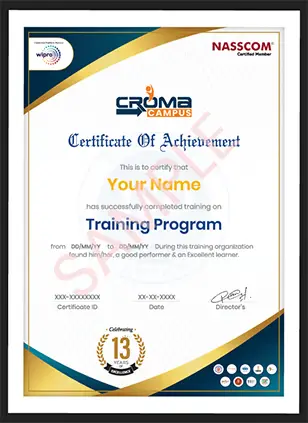

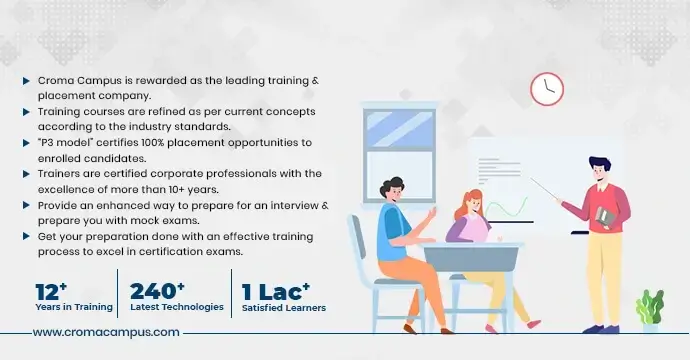

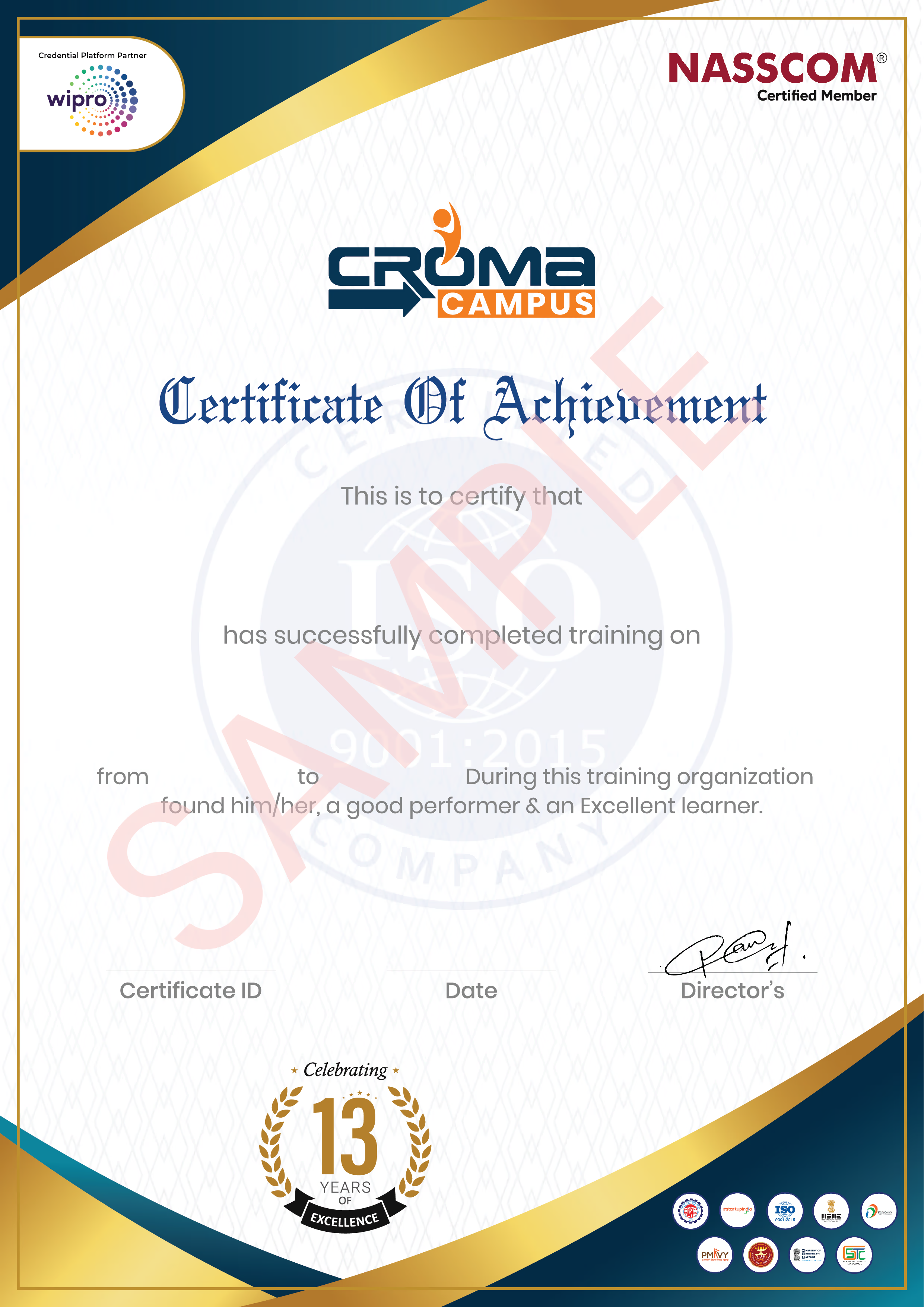
.webp)
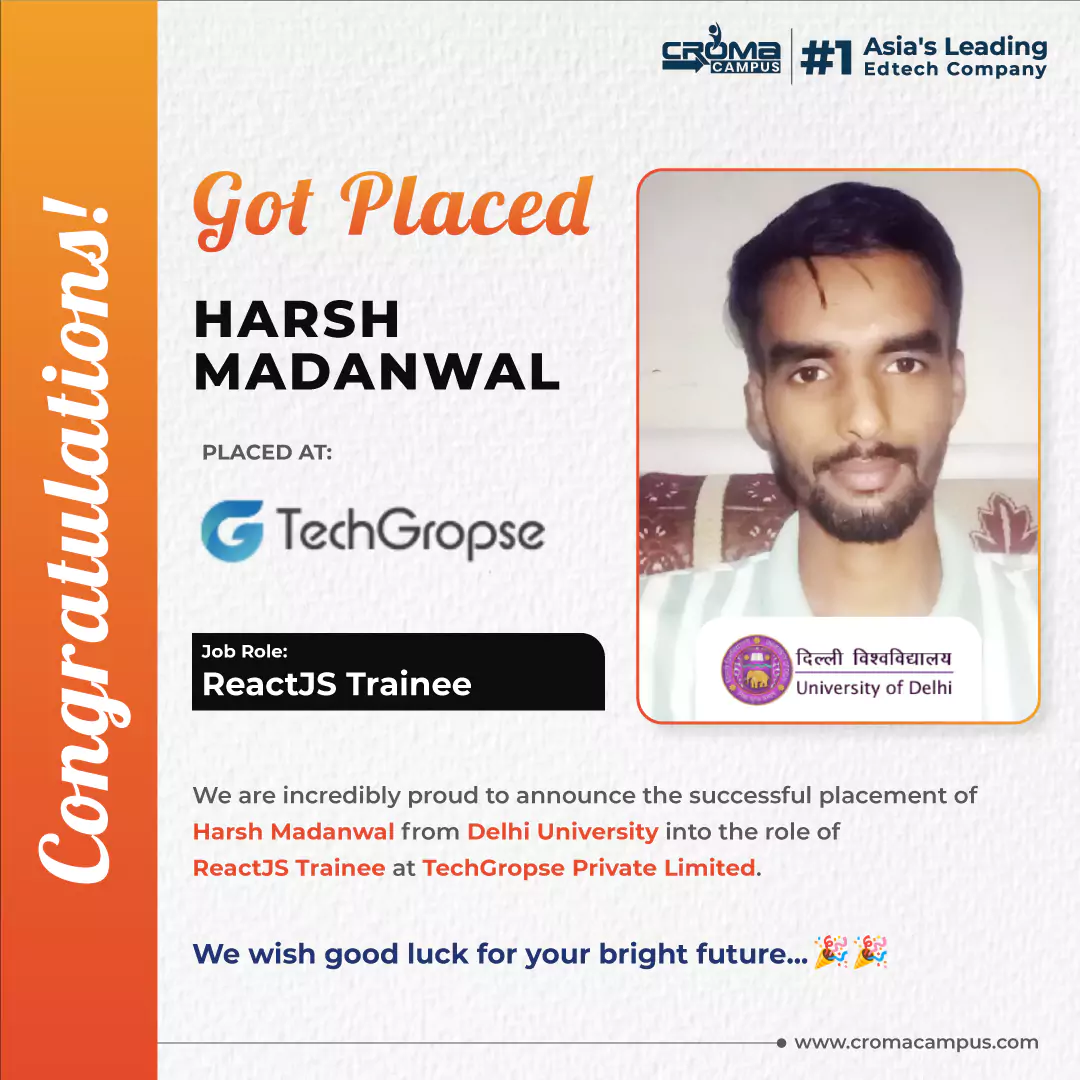







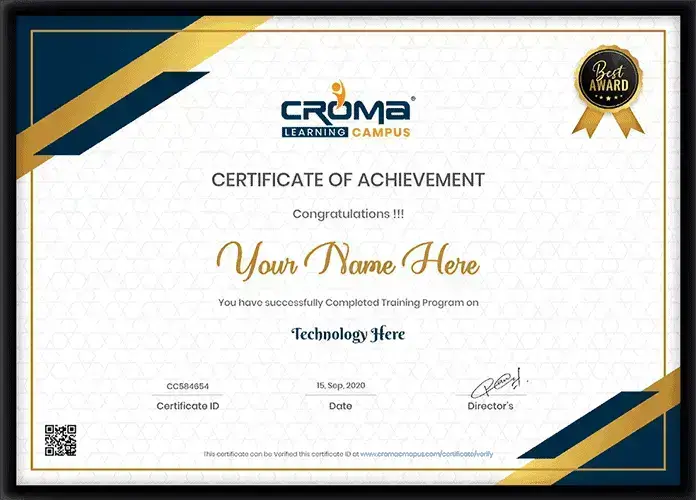












 Master in Cloud Computing Training
Master in Cloud Computing Training